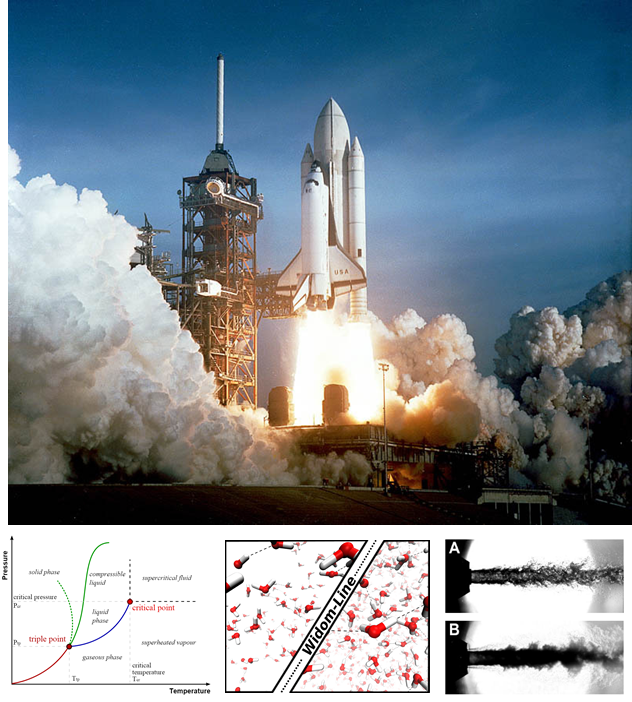New course in Fall 2020!
New course in Fall 2020!

Will be offered in Fall 2020!
Practical propulsion systems operate at high pressures, e.g., the chamber pressure of the RD 170 family developed by the Soviet Union in 1970s, one of the most powerful liquid-fueled rockets, is around 245 bar. As a result of the high pressure, the injected fuel may be at transcritical or supercritical state during the mixing, evaporation and combustion processes. Modeling these processes has serious challenges due to the non-equilibrium and unsteady nature of the phenomena, lack of a physical interface, and departure from the ideal gas behavior. This course will focus on the thermodynamics of non-ideal gases with applications in high-pressure propulsion systems such as rockets, gas turbines and internal combustion engines. Topics include basic concepts of gas kinetic theory and statistical thermodynamics, intermolecular potential and molecular dynamics, real-gas equation of state (EOS) for pure fluids and mixtures and mixing rules, phase diagrams and equilibria, vapor-liquid equilibrium calculations, and critical enhancement phenomena. The course will also discuss recent progress in understanding and modeling high-pressure chemical reacting flows, including supercritical droplets, jets and flames, and combustion chemistry at high pressures.
